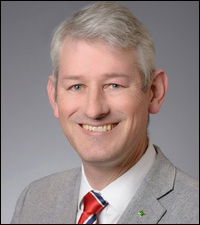Vanderbilt computer science professor seeks to make existing car systems smarter as part of $6 million NSF grant

Jonathan Sprinkle, a computer science professor at Vanderbilt University, is among seven principal investigators using a $6 million grant from the National Science Foundation to explore a new way to engineer cyber-physical systems (CPS).
Examples of CPSs—which involve algorithms, networks and physical components—include smart power grids, implantable medical devices and transportation technology such as self-driving cars, which are the focus of the five-year, multi-institutional project.
Sprinkle’s role will be to find ways to enhance the capabilities of existing sensors and on-board computers currently installed in many vehicles.
“Technology in systems such as cars is accelerating, with more and more driver assistance features each year, but it is not easy to upgrade these features unless they are redesigned,” said Sprinkle, whose research interests and experience are in model-based approaches to cyber-physical systems. “I’m pleased to be part of this cutting-edge research, and I look forward to collaborating with the various partners to help transcend the computational challenges of traditional methods.”
 The project aims to rethink how to model, analyze and design a new generation of intelligent transportation systems using the algorithms already running these systems.
The project aims to rethink how to model, analyze and design a new generation of intelligent transportation systems using the algorithms already running these systems.
The researchers will collaborate with industry and academic partners to advance CPSs both in research and education through training programs for high school and undergraduate students, with a particular focus on creating research opportunities for students from underrepresented backgrounds.
The project is funded through the NSF’s Cyber-Physical Systems program, under the Frontier category.
Contact: Lucas Johnson, 615-343-0137
lucas.l.johnson@vanderbilt.edu
